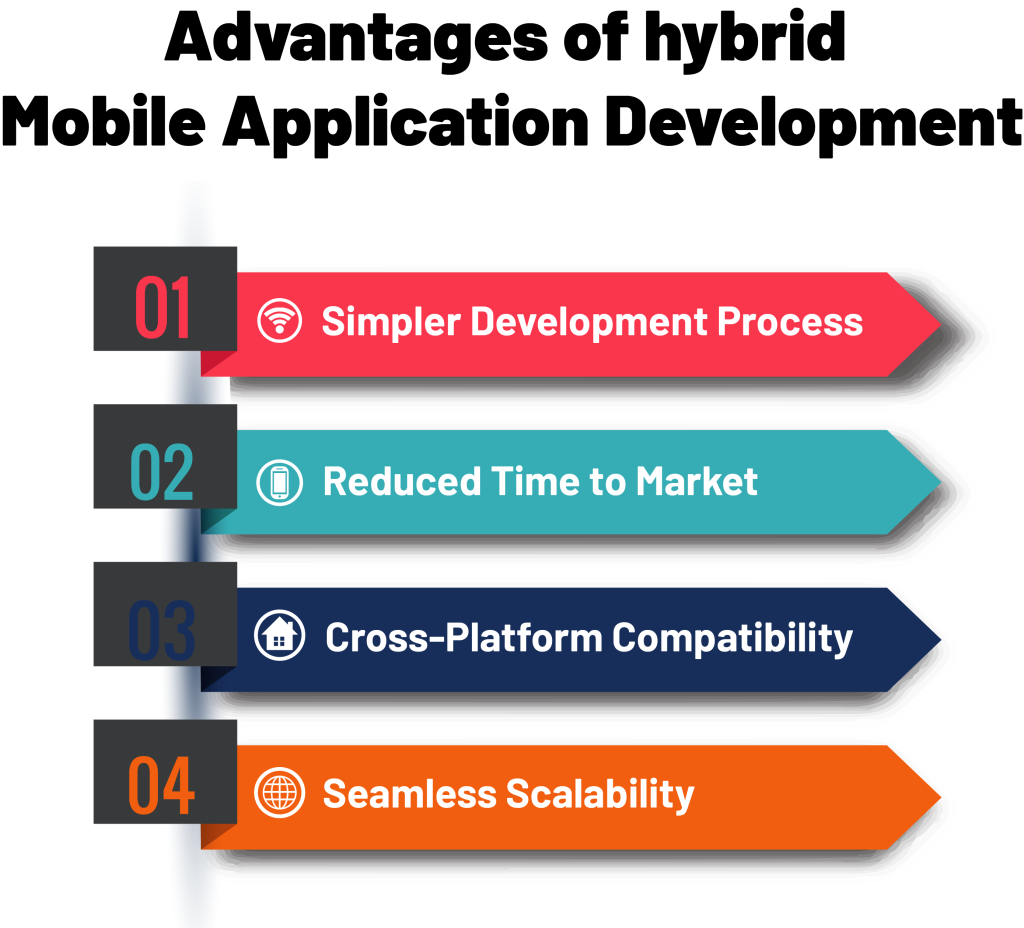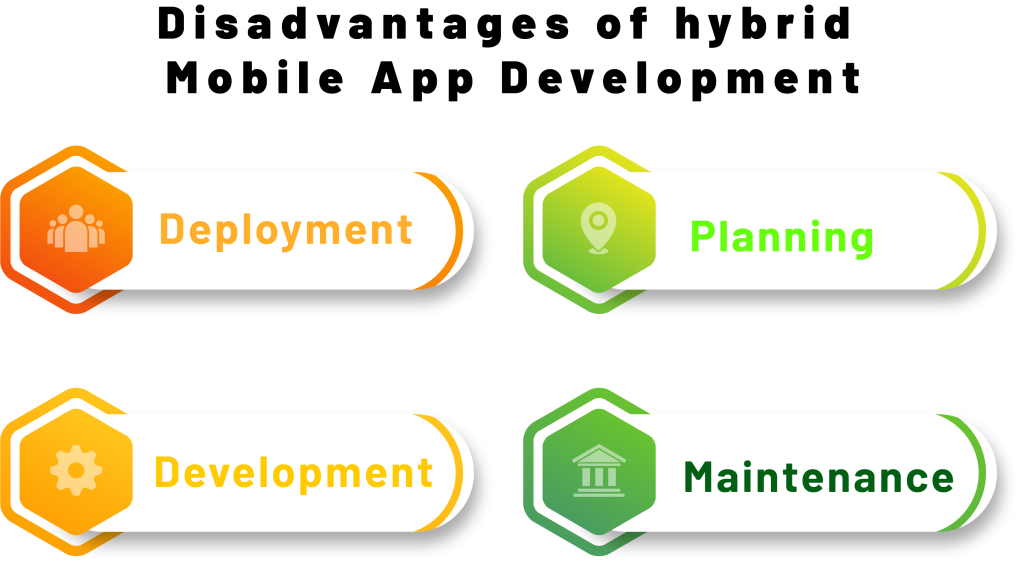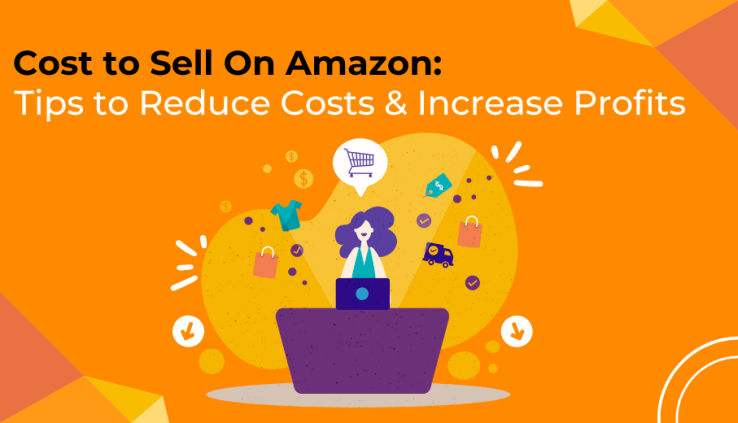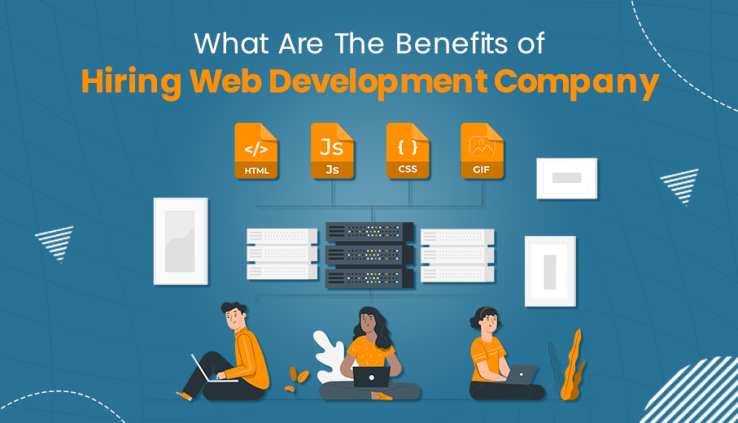With the substantial increase in mobile phone users in the last decade, almost every business needs to build a mobile application. However, one of the significant strands you need to consider while developing your application is choosing between native or hybrid mobile app development.
Like any other app, both solutions have pros and cons. Many businesses opt for hybrid apps as it is better in terms of budget, time to market, and other factors. One report by Forbes states more than 35 of the top 50 retail apps in America are hybrid. Besides, popular formats like Twitter, Instagram, Uber, etc., use hybrid applications. Which gets us to the question- what are hybrid apps, and what are their benefits?
This article shall be a detailed manual for hybrid app development, its advantages and disadvantages, and the technologies to develop them.
Let us dive!
What is Hybrid Mobile App Development?
Through the use of a single codebase, hybrid mobile app development enables programmers to create applications that can work across various platforms, including iOS, Android, and others. To create cross-platform programs, it mixes web technologies like HTML, CSS, and Javascript inside a native container. These apps, which are available through app stores, balance native and web functions and offer a practical and affordable way to reach a larger audience.
Native vs. Hybrid Mobile App Development
Mobile application development takes a major time and financial investment. So, when selecting a solution for a new mobile app, deciding between native and hybrid apps is crucial. A few factors that will influence the decision include the target audience, budget, and project complexity.
To comprehend the distinctions between native and hybrid app development, take into account the following:
Native apps are created especially for mobile operating systems like Apple iOS and Android. Programming languages that work with the platform’s operating system are used by developers. Because these apps have complete access to the device’s native features, performance and security are enhanced. However, native apps have higher development and maintenance costs. For platform-specific targeting or high-performance requirements, they are effective.
Contrarily, hybrid app development enables the creation of a single code and its distribution across a variety of platforms, including Android, iOS, and Windows. The adaptability is increased by the availability of numerous programming frameworks and languages. Despite their benefits, hybrid apps need a larger codebase to maintain compatibility across different OSs and versions. These apps cost less to create and maintain since they have a single codebase.
Advantages of Hybrid Mobile Application Development

Simpler Development Process
Developing hybrid apps is more superficial than their native counterparts, as developers only need to code for one application. There’s no necessity to learn various programming languages for each operating system. Hybrid mobile app development primarily involves web technologies such as HTML, CSS, and JavaScript. Additionally, developers can select from frameworks like Xamarin, Flutter, and React Native.
Reduced Time to Market
Hybrid app development empowers businesses to utilize their existing development tools to code applications, eliminating the need to seek new technologies or hire platform-specific experts. Also, the same code can be used across platforms, bypassing the creation of distinct codebases. This approach significantly accelerates deployment time.
Cross-Platform Compatibility
A significant advantage of hybrid app development is its cross-platform compatibility. Code is written once and executed on multiple platforms. In contrast to native apps, hybrid apps transcend platform specificity, making them an excellent choice for businesses seeking to avoid the cost and effort of building separate apps for each platform.
Seamless Scalability
Scalability is pivotal in mobile app development, offering flexibility, reliability, and security while enabling the incorporation of new features. Hybrid mobile app development ensures easy scalability, requiring minimal code alterations to expand the app across platforms. A single code change effectively impacts all platforms.
Cost-Effectiveness
App development expenses are rising. Developing native apps for every platform is pricier due to the cost of development kits, hiring specialized engineers, and time consumption. Conversely, hybrid apps don’t require platform-specific development kits or hiring distinct platform experts. This cost-saving measure enhances profitability.
Enhanced User Experience
Hybrid mobile app development facilitates the reuse of design elements across various platforms, ensuring consistent user experiences regardless of the platform, which enhances the brand’s image.
Simplified Maintenance
The hybrid app development approach streamlines code maintenance. Developers needn’t manage multiple codebases and monitor diverse platforms. Instead, they can focus on a unified back-end, allowing simultaneous app updates across all platforms.
Disadvantages of Hybrid App Development

Sluggish Performance
Developing hybrid apps mandates writing extensive code compared to native apps to cater to diverse platforms. It incrementally enlarges the app’s size, potentially influencing its speed. Additionally, depending solely on a solitary codebase for all platforms could result in neglecting specific native features in hybrid apps, consequently impacting performance and user contentment.
Delayed Feature Implementation
Hybrid app development involves utilizing third-party frameworks that aren’t always promptly updated. Consequently, introducing new features takes longer compared to native apps.
Increased Testing Complexity
Testing a hybrid app proves more intricate as it necessitates assessment on various devices across platforms to ensure proper functionality. Additionally, these apps might share considerable code among platforms. Some segments are functionally natively designed for specific operating systems, intensifying the testing complexity.
Six Stages of Hybrid App Development
Hybrid mobile app development involves merging web technologies with native capabilities. Let’s delve into the distinct stages of hybrid app development.
Planning
The initial phase entails assessing whether this solution suits your project. If a hybrid app aligns with your business goals, pinpoint the features to include and select suitable tech stacks for development.
Architectural and Interface Design
The design phase is pivotal within the Software Development Life Cycle (SDLC). Here, software architects craft an encompassing product architecture based on stakeholder input and thorough business requirement analysis.
Development
Following feature planning and design, the subsequent step involves coding to establish a robust, secure backend for high performance. This phase also encompasses creating an appealing user interface.
Testing and Debugging
Post-coding, developers conduct comprehensive testing to ensure the app functions as intended, which involves evaluating both the front and back end and addressing any glitches.
Deployment
The final stage entails deploying the hybrid app across platforms, enabling user access for downloading and installation.
Maintenance
Post-deployment, consistent maintenance is required to address bugs, ensure optimal user experience, and introduce new features. Staying ahead of competitors involves embracing the latest app development trends and leveraging emerging technologies.
Top 6 Popular Hybrid Mobile App Development Frameworks
React Native
Introduced by Facebook in 2015, React Native gained rapid popularity and found use in significant organizations such as Uber, Skype, Bloomberg, and Instagram. This open-source JavaScript framework facilitates multi-platform UI component development through JSX, linked to native code.
Critical Benefits of React Native
- Approximately 90% of the code is reusable across Android and iOS.
- Broad community base due to high popularity.
- Node Package Manager (NPM) installation simplifies the process for newcomers.
- Compatibility with device hardware components via numerous plugins.
- Accelerated development compared to other frameworks.
Flutter
Flutter, a relatively recent framework, has generated substantial excitement in the past few years and was identified as the most popular Hybrid mobile framework in a Statista report. Backed by Google, this open-source framework is renowned for its speed and reliability. It empowers developers to create creative UIs with flexible designs, and renowned brands like Amazon, Alibaba, BMW, and Toyota have utilized it.
Key Benefits of Flutter
- Intuitive UI designs with ready-to-use widgets for interactive elements.
- Rapid execution, minimizing time-to-market.
- A low entry barrier is accessible for those with basic coding knowledge.
- Adaptability to varying screen sizes.
- Streamlined testing due to a unified codebase.
- Native app-level performance and experience.
Xamarin
Developed by Microsoft, Xamarin is a top framework for hybrid app development. Utilizing C#, it surpasses Java and Objective C in sophistication. Developers employ Xamarin to create hybrid iOS, Android, and Windows apps.
Key Benefits of Xamarin
- Developers can reuse approximately 90% of the codebase across multiple platforms.
- Xamarin-built apps offer high performance comparable to native apps.
- It simplified testing, updates, and maintenance.
- It comes equipped with testing tools.
- Provides a comprehensive mobile app development toolkit.
Ionic
Ionic is a well-recognized framework for hybrid app development. By leveraging HTML, CSS, and JavaScript and incorporating built-in AngularJS support, front-end developers favor it. Ionic excels in creating Progressive Web Apps (PWAs) with its comprehensive library of UI design components.
Key Benefits of Ionic
- Abundant UI components and layouts.
- Pre-generated app setups with creative layouts.
- Testing and debugging tools for interactive app development.
- Integration of Angular concepts, easing familiarity for Angular-savvy developers.
NativeScript
For developers proficient in JavaScript, TypeScript, or Angular, NativeScript emerges as a premier framework. This framework features a runtime bridge module with a JavaScript-based virtual machine, providing a native user experience across mobile platforms.
Key Benefits of NativeScript
- Native app-level performance on all platforms and devices.
- Unrestricted access to iOS and Android APIs.
- Utilizes JavaScript, an accessible and developer-friendly language.
- Expedited app testing and debugging.
- It enhanced code execution speed.
Framework7
A free and open-source framework, Framework7 creates mobile and web-based applications and Progressive Web Apps (PWAs) with a native feel. It doesn’t rely on third-party libraries even for DOM manipulation and incorporates its custom DOM7. Framework7 offers components for renowned JavaScript frameworks such as React, Vue, and Svelte.
- Not reliant on third-party libraries, even for DOM manipulation.
- Offers a wealth of widgets and components.
- You can initiate it with basic HTML, CSS, and JavaScript proficiency.
- Open-source and freely accessible framework.
Collaborate with HRTECH for Your Hybrid Mobile App Development Solution.
Crafting mobile applications for each platform consumes substantial resources and finances. The rise of hybrid apps stems from their advantages, like cross-platform compatibility, cost efficiency, and expedited time-to-market. Yet, selecting the appropriate avenue for your app’s construction remains pivotal. Evaluating factors such as development expenses, timeline, and target audience empowers you to choose the optimal choice.
Hybrid mobile app development offers compelling benefits to your enterprise, mainly when targeting a diverse audience across mobile platforms. While achieving nearly comparable performance levels with native apps, it presents an avenue to economize significantly. The subsequent step entails engaging the right hybrid app development services for your venture. Given the competitive landscape, securing proficient engineers can be a challenge; however, HRTECH can expedite the process by facilitating your access to a thoroughly vetted hybrid mobile app development team within a mere 2-week span. Visit or get in touch with us at www.hrtechservices.com




